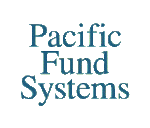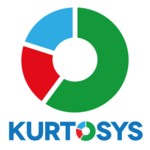Yes, most hedge fund software can be accessed from numerous devices and platforms. Users may stay connected and view real-time data from any device, including desktop, laptop, and mobile. Many software suppliers provide both web-based and mobile apps, allowing hedge fund personnel to easily manage their portfolios and access critical information while on the road.
List of Best Hedge Fund Software
DocSend is the definitive solution for sales teams. Our user-friendly platform enables efficient management, sharing, and presentation of sales materials, with the added benefit of real-time document analytics. Utilize DocSend to enhance your sales p...Read More Docsend
Seeking Alpha is a investment tool for seasoned and novice investors alike. Get access to a vast array of independent stock research, advanced fundamental analysis tools, and reliable market data. Our dynamic community of investors offers a diverse r...Read More Seeking Alpha
ProFundCom is a digital marketing platform tailored exclusively for the financial services sector. With an extensive experience of nearly two decades, our innovative solutions help in maximizing marketing tactics and enhancing investor engagements. D...Read More ProFundCom
PFS-Paxus is a tool for streamlined accounting and administrative management. Crafted for fund administrators, it offers advanced features like multi-unit series pricing, allocation, and fee calculation for both alternative and traditional funds. Say...Read More PFS-Paxus
Orchestrade - a premier trading and risk management software used by top financial institutions and energy companies. Renowned for its unparalleled adaptability, swift response to market shifts, and acclaimed features, Orchestrade easily integrates w...Read More Orchestrade
RiskRunner is a software designed to streamline risk management, trade capture, and product management processes. It offers seamless integration of data from various sources into a centralized platform, making it an efficient trading desk information...Read More RiskRunner
Clienteer solution for efficient transaction reporting, data consolidation, and account monitoring. Take your customer relationship management to the next level with advanced tools for compliance and fundraising. Stay connected to your appointments,...Read More Clienteer
Broadridge Revenue and Expense Management, a platform designed to streamline financial processes and provide comprehensive tracking and reporting of both revenues and expenses. This innovative solution promotes transparency and boosts operational eff...Read More Broadridge Revenue and Expense Management
FINCAD Analytics Suite solution for valuing fixed income and derivatives. With advanced features and real-time data, it allows for precise risk assessment and the ability to capitalize on market opportunities. Stay ahead of the game with customizable...Read More FINCAD Analytics Suite
Kurtosys is a leading digital solution for investment management companies. Our platform offers state-of-the-art reporting, interactive portals, and investor websites that are easy to use. Our advanced features simplify data delivery and improve clie...Read More Kurtosys
Backstop is an advanced software that streamlines research and portfolio management for various assets, streamlining data and enhancing decision-making capabilities. It provides investment firms with the necessary tools to excel in client relationshi...Read More Backstop
AlphaDesk is a highly efficient platform designed to manage multiple portfolios, currencies, and assets seamlessly from a single interface. It offers user-friendly functionality and seamless integration, making it a cost-effective solution suitable f...Read More AlphaDesk
Experience the power of Microgen 5Series, this software designed to revolutionize your financial operations. With a focus on regulatory compliance, this robust tool streamlines complex processes, ensuring accuracy and driving growth in a constantly c...Read More Microgen 5Series
A Treasury Management Solution - is a designed to streamline and optimize all your treasury operations. Trust in our advanced solution to boost fund performance, effectively mitigate risks, and enhance overall efficiency. With essential functionaliti...Read More Treasury Management Solution
Dynamo is an equity management software specifically designed for institutional investors, foundations, endowments, and fund managers. It provides a comprehensive set of customizable features and advanced research tools to enhance portfolio managemen...Read More Dynamo
Learn More About Hedge Fund Software
- What Is Hedge Fund Software?
- What Are The Recent Trends In Hedge Fund Software?
- Benefits Of Using Hedge Fund Software
- Important Factors To Consider While Purchasing Hedge Fund Software?
- What Are The Key Features To Look For In Hedge Fund Software?
- Why Do Businesses Need Hedge Fund Software?
- How Much Time Is Required To Implement Hedge Fund Software?
- What Is The Level Of Customization Available In Hedge Fund Software?
- Which Industries Can Benefit The Most From Hedge Fund Software?
- Conclusion
What Is Hedge Fund Software?
Hedge fund software is a specialized application that helps hedge fund managers with the day-to-day operations of their investment fund. It streamlines and automates a variety of operations, including risk management, portfolio management, and investor communications, to improve the fund's performance and efficiency. One of the most important advantages of hedge fund software is its capacity to perform real-time data analysis.
This enables managers to swiftly and accurately evaluate the fund's performance, detect potential dangers, and make sound investment decisions. Furthermore, hedge fund software has portfolio management features that allow managers to monitor and adjust their portfolios, as well as assess the performance of various asset classes. This feature enables managers to optimize their investments, potentially increasing their profits.
Another important feature of hedge fund software is the investor relations module. This allows managers to engage with their investors and deliver tailored investment reports, thereby boosting transparency and confidence. Furthermore, hedge fund software provides robust risk management tools. It enables managers to assess and manage risks using methods such as scenario analysis, stress testing, and value at risk estimates.
These characteristics are critical in the volatile world of hedge fund investing. In addition to these essential capabilities, hedge fund software may contain other functionalities such as compliance monitoring, accounting, and tax administration, which help to streamline the fund's operations and maintain regulatory compliance. When choosing hedge fund software, seek for a solution that is adaptable, user-friendly, and integrates seamlessly with existing systems. It should also give dependable assistance and training to help managers realize its full potential.
What Are The Recent Trends In Hedge Fund Software?
In recent years, the hedge fund business has seen substantial expansion and transformation. As a result, hedge fund software has evolved to reflect these changes and fulfill the changing needs of investors and fund managers.
The following are some current trends in hedge fund software that potential buyers should be aware of:
1. Rising Demand For Data Analytics And Reporting Capabilities: Data analytics is now an essential component of successful fund management. Hedge fund software now includes extensive data analytics tools that allow fund managers to get insights into their portfolios, track performance, and make smart investment decisions. Furthermore, there is an increasing demand for software that can provide personalized reports for investors, regulators, and other stakeholders.
2. Integration With Third-Party Platforms: Hedge fund software is now being developed to work seamlessly with data providers, custodians, and prime brokers. This enables real-time data aggregation and effective communication between systems, resulting in streamlined operations and increased productivity.
3. Embracing Cloud-Based Solutions: As cost-cutting and remote operations become more prevalent, many hedge funds are turning to cloud-based software solutions. This provides more flexibility, accessibility, and cost reductions than traditional on-premise applications.
4. Integration Of AI And Machine Learning: Artificial intelligence (AI) and machine learning (ML) are transforming the hedge fund sector. Many hedge fund software businesses are increasingly using AI and machine learning algorithms to automate operations like data analysis, risk management, and trade execution, resulting in more efficient and accurate decision-making.
5. Improved Cybersecurity Measures: Given the sensitivity of hedge fund data, fund managers prioritize cybersecurity. As a result, hedge fund software now includes strong security features like encryption, multi-factor authentication, and intrusion detection systems to protect against cyber attacks.
Benefits Of Using Hedge Fund Software
Hedge Fund Software is an essential tool for modern hedge fund managers, giving them superior technology and analytical ability to make sound investment decisions. This software combines several functionalities and automates various operations, saving managers time and potentially improving their profits.
We'll look at the advantages of adopting hedge fund software for existing and budding hedge funds.
1. Improved Risk Management: One of the most significant advantages of adopting hedge fund software is its strong risk management capabilities. The software employs cutting-edge algorithms and quantitative analysis tools to monitor and identify potential risks, empowering managers to make data-driven decisions and successfully reduce risks. This characteristic is especially important in volatile markets, where risk management is essential for a hedge fund's performance.
2. Increased Efficiency: Hedge fund software automates investment procedures such as portfolio tracking, transaction management, and reconciliation. This automation decreases the possibility of human error and saves managers time, allowing them to focus on other important activities like evaluating market trends and making sound investment decisions. Furthermore, the software's real-time data updates give managers with precise and timely information, enhancing their decision-making ability.
3. Comprehensive Portfolio Management: Hedge fund software includes portfolio management features that allow managers to monitor and manage several funds and strategies simultaneously. This tool provides a comprehensive perspective of the fund's performance, allowing managers to evaluate strengths, shortcomings, and opportunities for development. Managers can use this information to improve their portfolio for maximum profits.
4. Improved Regulatory Compliance: Another significant advantage of hedge fund software is its compliance management features. The program follows regulatory rules and automates compliance activities, lowering the risk of noncompliance and related penalties. This capability is especially important for hedge funds that operate internationally and must comply with a variety of regional legislation.
5. Advanced Data Analysis: Hedge fund software employs advanced algorithms and data analytics tools to study market trends and patterns, giving managers with useful information to help them make investment decisions. This capability also allows managers to backtest various strategies and situations, which aids in identifying possible opportunities and improving fund performance.
Important Factors To Consider While Purchasing Hedge Fund Software?
As with any investment, selecting the best hedge fund software for your company is critical. It can assist improve efficiency, streamline operations, and boost your hedge fund's overall performance. With so many alternatives available, it can be difficult to decide which software will best meet your needs.
To assist you make an informed decision, here are some key considerations to consider when selecting hedge fund software.
1. Functioning: The first and most crucial consideration is the software's functioning. You must ensure that the software includes all of the necessary features and capabilities that are consistent with your business objectives. Portfolio management, risk management, performance analytics, and accounting are some of the potential functions to consider.
2. Customization: Each hedge fund firm is unique, and your software should be adaptable to your specific needs. Look for software that allows you to personalize features and workflows while also integrating easily with your existing systems. This ensures that the software is adapted to your business procedures, allowing you to achieve optimum efficiency.
3. Data Security: Because hedge fund software handles sensitive financial information, it is critical to select a secure and dependable solution. Look for features like data encryption, user access limits, and backup and disaster recovery plans. Additionally, ensure that the software complies with industry requirements such as GDPR, SEC, and FINRA.
4. User-Friendly Interface: A confusing and crowded interface might reduce productivity and slow down your team's workflow. Consider software with a simple, intuitive user interface. This ensures that your team learns and uses the software fast and efficiently, saving time and increasing production.
5. Scalability: It is critical to select hedge fund software that can expand alongside your organization. As your firm grows, you may need more features and scalability to meet the new demands. Consider software that has multiple pricing options or can be readily upgraded to match your changing requirements.
6. Help And Training: Investing in new software might be intimidating, so it's critical to have adequate help and training during implementation. Look for software companies that give training sessions, online tutorials, and a dedicated customer support team to ensure a smooth transition and understanding of the product's features.
7. Cost: Finally, assess the software's cost and the potential return on investment. While it may be tempting to go with the lowest choice, consider the software's capabilities and long-term benefits. Remember to account for any additional costs, such as maintenance fees and setup charges.
What Are The Key Features To Look For In Hedge Fund Software?
When it comes to selecting the best hedge fund software, any potential buyer should examine a few crucial aspects. These qualities have a significant impact on the productivity, accuracy, and overall performance of a hedge fund, thus it is critical to properly assess each software choice before making a decision.
We'll go over the key features to look for in hedge fund software so you can make an informed and confident decision.
1. Real-Time Reporting: One of the most important things to look for in hedge fund software is the ability to report in real-time. This gives fund managers access to current information on market trends, portfolio performance, and other crucial variables, allowing them to make more informed and timely decisions.
2. Customizable Dashboards: The option to personalize dashboards to meet individual requirements is another crucial feature to look for. This enables users to rapidly obtain and analyze the most relevant data for their fund, increasing overall efficiency and productivity.
3. Portfolio Management: The program should include sophisticated portfolio management tools that enable for easy tracking and analysis of assets. This covers risk and performance monitoring, as well as support for a wide range of asset classes.
4. Risk Management: Any hedge fund software worth considering should include strong risk management features. This includes elements like stress testing, scenario analysis, and VAR calculations, which are critical for risk management and fund stability.
5. Integrations: The software should be compatible with industry-standard tools and platforms such as Bloomberg, Reuters, and fund accounting software. This enables a smooth and simplified operation, eliminating the need for human data entry.
6. Compliance And Regulation: Compliance and regulatory requirements are critical components of hedge fund operations. Look for software that has compliance monitoring and reporting options to guarantee that your fund is always in compliance with regulations.
7. Scalability: As your budget expands, so will your software requirements. Choose a scalable system that can handle an expanding number of investors, assets, and transactions without compromising performance.
8. User-Friendly Interface: The finest hedge fund software will have an intuitive interface that is simple to use for anyone, regardless of technical knowledge. This lowers the learning curve and enhances user adoption, resulting in improved outcomes.
9. Security And Data Protection: In the hedge fund industry, sensitive financial data must be protected to the highest standards. Make sure the program has strong security features in place, such as encryption and access limits, to protect your data against cyber threats.
10. Customer Support: Last but not least, think about the level of customer service given by the software company. Look for a company that provides prompt and friendly service, whether via phone, email, or live chat, to ensure a smooth experience at all times.
Why Do Businesses Need Hedge Fund Software?
Hedge fund software has evolved into an indispensable tool for financial institutions. It provides a wide range of capabilities that are extremely beneficial to hedge fund managers and their clients.
Some of the main reasons why firms need hedge fund software are:
1. Streamlined Operations: Hedge fund software automates a variety of processes including portfolio management, trade execution, risk management, and reporting. This streamlines procedures, increasing efficiency and lowering the chance of manual errors.
2. Advanced Analytics: By providing real-time data and advanced analytics, hedge fund software allows organizations to make more informed investment decisions. This reduces risk and increases rewards for investors.
3. Regulatory Compliance: Hedge fund software helps organizations comply with numerous rules, including the Dodd-Frank Act and anti-money laundering regulations. This is critical for avoiding legal complications and keeping clients' trust.
4. Improved Communication: Hedge fund software facilitates communication between managers and investors, promoting transparency and confidence. This is especially critical for managing complex investments and building good client relationships.
5. Improved Risk Management: Hedge fund software includes risk management capabilities for identifying and mitigating potential risks. This includes tracking market trends, evaluating performance, and pinpointing opportunities for improvement.
6. Customizable Solutions: Each hedge fund has unique plans and goals, and hedge fund software provides customizable solutions that are adapted to the demands of each organization. This adaptability enables scalability and growth as the firm matures.
7. Cost-Effective: While hedge fund software is initially costly, it ultimately saves firms time and money by automating processes and streamlining operations. It also minimizes the need for extra workers, making it a more cost-effective long-term solution.
How Much Time Is Required To Implement Hedge Fund Software?
The deployment time for hedge fund software varies based on the program and the intricacy of your hedge fund's activities. On average, fully implementing hedge fund software can take several weeks to a few months. This comprises initial setup and configuration, data migration, and team training. Some elements that can influence installation time include the size of your hedge fund, the number of individuals who will use the software, and the level of customization necessary.
It is also critical to consider the time required for rigorous testing and troubleshooting to verify that the program works properly before going live. In addition, the onboarding procedure with a new software vendor may impact the installation timetable. It is advised that you collaborate closely with the software vendor to create a clear plan and timeframe for implementation.
This will help to streamline the process and reduce any delays. It is crucial to remember that, while it may take some time to fully install hedge fund software, the benefits of enhanced efficiency and accuracy in fund management significantly surpass the initial time commitment. With careful planning and communication with your software vendor, you can assure a smooth and effective implementation.
What Is The Level Of Customization Available In Hedge Fund Software?
Hedge fund software provides varied levels of customisation based on the vendor and the hedge fund's individual needs. In general, these software solutions offer a variety of customization possibilities to meet the specific plans and preferences of hedge fund managers and their staff. At the most fundamental level, most hedge fund software allows users to select from a choice of modules or features to create their own personalized solution.
Portfolio management, risk analysis, trade execution, and reporting are some of the choices available. In addition, the program may allow users to customize the user interface and visualizations based on their preferences. Some hedge fund software suppliers also give more complex customization options, such as the ability to modify algorithms and models to a hedge fund's specific investment strategies.
This can give the fund a competitive advantage by better reflecting their unique strategy in the software. In some circumstances, hedge fund software may also integrate with third-party tools or platforms, allowing for even more customisation. This is especially useful for hedge firms with sophisticated and specialized procedures.
Before making a decision, hedge fund managers should carefully consider their customized requirements and compare them to the offerings of various software suppliers. Finally, the level of customisation possible in hedge fund software has a significant impact on the overall efficiency and performance of a hedge fund's operations.
Which Industries Can Benefit The Most From Hedge Fund Software?
Hedge fund software is useful for a variety of sectors, however some may benefit more than others. Each business has its own set of needs and issues, and hedge fund software may meet these individual requirements and give significant solutions.
Let's explore, which sectors can profit the most from utilizing hedge fund software.
1. Financial Institutions: One of the most obvious businesses to profit from hedge fund software is the financial sector. Hedge fund software is intended to manage complex financial data, assess market patterns, and make sound investment decisions. Hedge fund software can help banks, asset management businesses, and investment banks gain a competitive advantage by automating operations and improving portfolio management.
2. Private Equity Businesses: Private equity businesses stand to benefit significantly from hedge fund software. These corporations make investments in companies with the goal of increasing their value. Hedge fund software can assist in identifying possible investment possibilities, performing due diligence, and analyzing the financial performance of target companies. This software also helps with post-investment monitoring and reporting, which increases the overall efficiency and success rate of private equity organizations.
3. Insurance Businesses: Insurance businesses manage enormous sums of money and invest in a wide range of assets to ensure their financial security. Hedge fund software can help insurance companies diversify their investment portfolios and reduce financial risks. This program also delivers real-time market data, allowing insurance businesses to make more informed investment decisions and obtain higher returns.
4. Pension Funds: Pension funds are responsible for managing employees' retirement savings, thus accurate and efficient investment management is critical. Hedge fund software can help pension funds by providing capabilities such as risk analysis, asset allocation, and portfolio optimization. It also aids in diversifying investments and maximizing returns, allowing pension funds to achieve their long-term financial objectives.
5. Real Estate: Real estate investment trusts and other real estate businesses can also profit from hedge fund software. This software includes capabilities for assessing market trends, forecasting real estate values, and locating lucrative investment opportunities. It is also useful for managing leases, assessing rental income, and tracking property performance, making it an indispensable tool for real estate investors.
Conclusion
Finally, selecting the best hedge fund software for your organization necessitates careful consideration of a variety of variables such as functionality, usability, and pricing. By thoroughly researching and understanding your individual requirements, you will be able to make an informed decision and choose a software solution that will improve your operations and help you meet your investment objectives.
It is critical to note that hedge fund software is a long-term investment and should not be selected exclusively on the basis of pricing. Instead, concentrate on the features and benefits that will bring value to your company and keep you ahead in a competitive market. Consider the availability of customer service, training resources, and future updates to ensure that you receive continuing support and that the software remains relevant as your company expands.
We hope this buyer's guide has helped you gain vital insights and a thorough grasp of hedge fund software. By keeping these points in mind, you may confidently analyze several software solutions and select the one that best meets your requirements. Remember to make an informed decision today; it will benefit off in the long term. Thank you for reading, and best wishes for successful investing!
Hedge Fund Software FAQ's
Can Hedge Fund Software Be Accessed Across Multiple Devices And Platforms?
Is Hedge Fund Software Future-Proof And Adaptable To Emerging Technologies Like AI, Blockchain Or IoT?
Hedge fund software is continually changing to be competitive in the fast-paced finance industry. Many hedge fund software companies are integrating AI, blockchain, and IoT technologies into their platforms to improve performance and efficiency.
This makes it future-ready and responsive to new trends. Using these modern technology, hedge fund software can analyze vast volumes of data, discover trends, and make accurate forecasts, resulting in better investing decisions. This makes it a crucial tool for hedge fund managers looking to remain competitive in the market.
Is There A Free Trial Offered To Assess Hedge Fund Software Before Committing?
Yes, most hedge fund software suppliers provide a free trial period to prospective customers. This enables consumers to evaluate the software's features and functionality before making a decision. During the trial, users can determine whether the program fulfills their specific requirements and is user-friendly. Take advantage of the free trial to confirm that the software is a good fit for your hedge fund's operations.
Does Hedge Fund Software Offer Data Security Features And Meet Regulatory Compliance Standards?
Yes, hedge fund software often includes extensive data security safeguards and is designed to meet regulatory requirements. To protect sensitive information, features such as encryption, multi-factor authentication, and secure data storage are used.
Additionally, hedge fund software must follow rules such as the Dodd-Frank Act and the Investment Advisers Act to ensure compliance and customer trust. To protect their operations and maintain data confidentiality, hedge fund managers must select software that provides superior security and regulatory compliance.
Can Hedge Fund Software Integrate Seamlessly With Existing Tools And Platforms?
Yes, hedge fund software can easily interface with existing tools and platforms. Most hedge fund software is designed to be adaptable and compatible with different systems. It can be integrated with portfolio management, risk management, and reporting systems, allowing hedge fund managers to better manage their assets.
Some hedge fund software has bespoke connectivity options, allowing users to link it to their preferred platforms. This means that hedge fund managers can continue to use their preferred tools while taking advantage of the advanced features of hedge fund software.

















